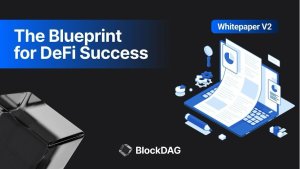Next generation banking? Old hat already. Next-generation bank for FX & OTC credit & clearing. Now that’s new!
FinanceFeeds, along with several senior FX industry executives over the past year, has often considered that a peer-to-peer ‘ecosystem’ style model may be a good solution to the curtailing by banks of counterparty credit to OTC participants. Today. Noble Bank International launches exactly that. We take a close look

There has been a vast amount of noise proliferating the internet over the past few months, largely spouted by people born in the 1990s whose hair is too large for their head, and whose recent years were spent in India and Thailand with a ramshackle holdall attached to their backs containing all but soap, about how the ‘next-generation banks’ are replacing the institutions.
This litany of ‘me-too’ attempts by the aforementioned to gain some very light degree of credibility of course can be completely disregarded, as there is absolutely no chance whatsoever that a start-up digital-only bank will be replacing the single-dealer platforms of Canary Wharf.
Retail banking with no physical presence is not new, in 1994, First Direct was established in Yorkshire, which was relatively revolutionary at the time as it was accessible via telephone only, and had no branches. This, however, was simply a branded division of a very well known and very historic British bank.
Fidor Bank in Germany is a more modern example, it has digital presence only, and even offers Bitcoin deposit and withdrawal services.
Next-generation banking, then, is just a talking point for the backpacking generation and media interns, and is being used as a buzzword rather than being studied and developed by those with detailed and proven banking technology industry experience.
Today, however, marks a turning point as Noble Bank International has made its foray into the global business of electronic-only banking.
This time, however, there is a considerable difference, and it should perhaps be taken more seriously, as Noble Banking International’s purpose is aimed firmly at the OTC derivatives and FX industry at institutional level.
The company today explained to FinanceFeeds that it considers several aspects of the current FX industry landscape to be addressed, those being a lengthy and often complicated process to establish credit relations, fragmented and restricted credit between participants, and very high costs associated with capital barriers for firms in the OTC sector.
Indeed, today, one of the most difficult commercial obstacles for prime of prime brokerages is the ability to obtain, and subsequently maintain counterparty credit agreements with eFX divisions of tier 1 banks.
There was a time, just five years ago, where a balance sheet of just $5 million would be sufficient, and the bank would never re-assess the relationship forthwith, but those days are long gone and it often requires a capital base of between $70 million to $100 million to be able to gain an actual live credit stream from a Tier 1 bank, if they will do it at all.
Additionally, companies with existing agreements constantly get them reviewed, which means that on certain occasions, banks remove the credit line altogether, leaving a prime of prime unable to aggregate sufficient price feeds to provide to the brokers that they service.
This has led to a substantial amount of corner-cutting, a very recent example being the demise of Galant Capital Markets, and the arrest of its senior executive in the Czech Republic. There has been a huge amount of knock on effect from that, which FinanceFeeds is continuing to investigate in detail, with several companies in various regions affected globally.
Noble Bank International’s ideology is to simplify the post trade workflows for FX and OTC transactions, and connect institutional participants in a peer-to-peer manner.
This is something that has been long discussed within the ranks of those who are experts in the FX industry (I have had several conversations with some of the most highly respected institutional market connectivity experts who all agree that a method which fosters greater prime brokerage relationships via a sort of ecosystem of non-bank firms is the way forward – Ed.)
The idea of this is to reduce the risk and cost by creating cross-liquidity transparency and enabling real time netting, clearing and settlement.
The Current Post-Trade Landscape
Establishing many different technological hypothetical scenarios, it can be surmised that post-trade processes in securities are likely to disrupt. Currently, the buyer and seller instruct their respective brokers about their trading orders, which are then routed to a trading venue when they can “cross” in the order book or an alternative system.
A clearing house then reconciles orders, possibly netting them with other pending instructions, and sometimes acts as the central counterparty (CCP) when it ‘nets by novation’. The clearing house informs brokers of their obligations and brokers instruct their settlement agents.
The settlement agent of the seller’s broker receives the securities from the seller’s custodian into its account, and credits them to the clearing house – which, for simplicity, we assume to have accounts in both the investors’ central securities depositories (CSDs). The clearing house then issues an instruction or the securities to be credited to the account of the buyer’s settlement agent, who credits them to the buyer’s custodian.
It may be necessary to carry out a reconciliation between the investors’ CSDs and the issuer’s CSD, e.g. to allow the execution of the notary function and of asset servicing, in that by using internalized settlement or via consolidation among intermediaries, the process may be simplified, but consolidation may lead to anticompetitive behavior, potentially creating natural or regulatory monopolies.
There may be a place in future for distributed ledger (DLT) technology in post trade clearing, which could come to fruition as a result of some of the large scale investments that have recently been made by institutions and professional services consultancies.
Taking in account that the impact of DLTs in the post-trading processes depends on the level of post-trade value chain, the type of governance they are subject to, and the willingness and legality to implement the innovation, the ECB paper analyzes the potential impact of DLTs on three different layers: settlement, custody, and clearing.
The incumbent institutions embrace the new technology to improve cluster/internal efficiency, leaving business practice “as it is”, i.e. current business practice continues. The European Central Bank considers that savings in reconciliation costs had been estimated at $1.2 billion for 2016, with the only breakthrough being near real-time updating of any change in ownership of the security due to direct access to the same ledger by intermediaries.
Core players, such as CSDs, adopt market-wide distributed ledgers. In this “adoption model” scenario, at least some peripheral players might become redundant.
A market-wide distributed ledger would mean automatic updates of securities accounts and some layers of the industry could become redundant, potentially ousting clearing houses, custodians, central securities depositaries (CSD) and the central counterparty (CCP).
More transparency in securities executed over the counter (OTC) would be a major achievement as well, with regulators having access to the ledger.
Issuing companies, governments or fintech companies take the lead in implementing peer -to-peer systems for securities transactions, thus taking the post-trade industry into a “new world”.
If capital markets were to migrate to a peer-to-peer model, the whole chain of intermediaries would become redundant. Companies and governments would have direct access to the market and issue their own securities on the distributed ledger.
With this in mind, Noble Bank International’s launch appears to be a development that could certainly interest many non-bank institutional liquidity providers as well as brokers looking to reduce their operational costs.









